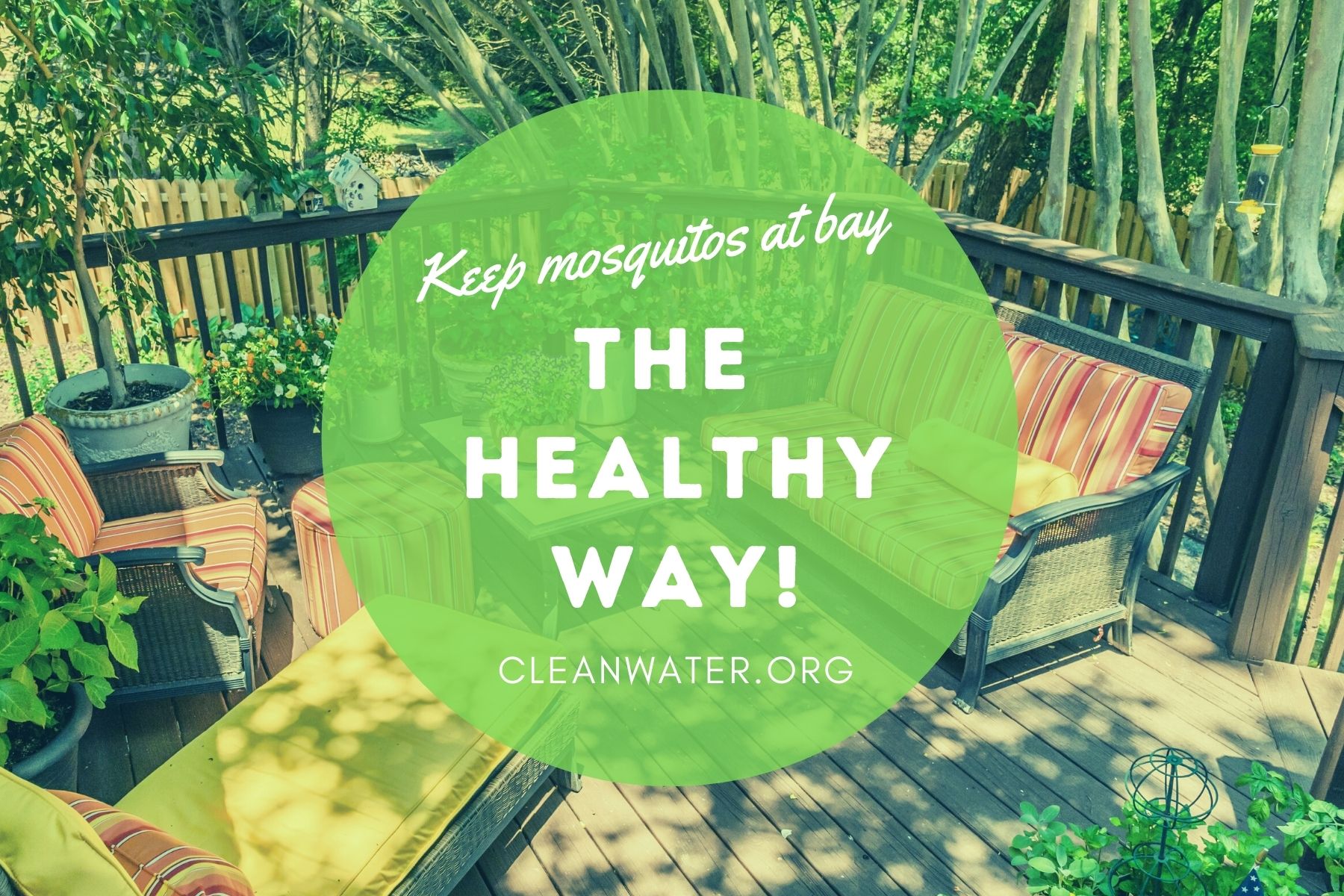
During mosquito season, there are some steps you can take to minimize your exposure to mosquitoes without relying on mosquito spray programs. While pesticide spray programs may seem like the best choice, they do pose health and environmental risks even when used as directed. Synthetic pyrethroids can worsen respiratory symptoms, organophosphates are linked to neurodegenerative diseases, and these pesticides are toxic to bees, pollinators, and other beneficial insects (as well as birds, fish, and amphibians - natural predators of mosquitoes!).
Fortunately, there are effective ways to minimize mosquito bites while also minimizing your exposure to toxic pesticides.
- Protect decks, backyards, and outdoor areas
- Eliminate standing water where you can. Mosquitoes breed in pooled water - from leaky faucets, gutters, flowerpots, and other containers. Even a bottle cap is enough pooled water for mosquitoes to breed.
- Where you can't eliminate standing water, use mosquito dunks granules or disks. Mosquito dunks use BTI, a bacteria deadly to mosquito larva but harmless to other living things.
- Use window screens and fans. An electric fan near you outdoors is an effective way to keep mosquitoes at bay, and it makes muggy Maryland summers a lot more comfortable!
- Plant a wide range of mosquito-repelling plants
- These plants are beautiful and fragrant, and also repel mosquitoes! Examples include: basil, catnip, horse mint, scented geranium, lavender, lemongrass, marigolds, rosemary, and thyme.
- Use non-toxic and organic mosquito repellents, including lemon eucalyptus and citronella.
- Minimize your exposure by being aware of peak exposure times (dawn and dusk) and wearing clothing that minimize exposed skin.
- Loose, long sleeved clothing can keep you cool in the summer and keeps mosquitoes at bay.
- Wear light colored clothing instead of dark. Mosquitoes use a combination of sight, smell, and heat to find their next blood meal. They can see dark objects better than light ones.
Mosquitoes are incredibly irritating, but by targeting where they breed and adapting some of our behavior, we can reduce our use of pesticides that also impact our health and environment.